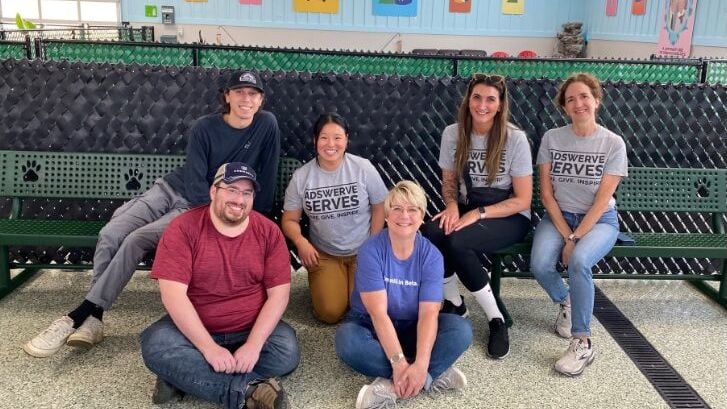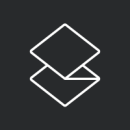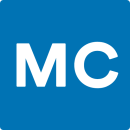Creating a great remote-first culture is no easy task, but when done right, employees report feeling productive, creative and connected.
So, what’s the secret?
According to the following eight tech companies, they’ve found success by ensuring that their workflows, tools and cultures are all intentionally designed around a remote-first workforce.
Companies With Great Remote-First Cultures
Adswerve an award-winning data, media and tech consultancy and a leading partner to Google and Adobe.
What is your company's approach to remote work? Why does this work well for you and your team?
Adswerve's approach to remote work is something that I really appreciate. We are a virtual-first company, and as other companies keep talking about going into the office, we stand firm on that. Being virtual, you get to work, interact and learn from people in different area codes, countries and cities, and those diverse perspectives really drive creativity internally. I also really appreciate the fact that we have this remote work flexibility because it allows me to bring my best self to work, being able to run to the doctor or any needed appointments as long as I still get my work done.
We are a virtual-first company and committed to being virtual-first as other companies are going back into the office. We’re a virtual-first workplace with team members who live — and work from — all over the United States, Canada, South Africa and Europe. We stay connected with digitally centered strategies that allow us to collaborate closely with our team members — whether we're in the same conference room or halfway around the world. It gives us the freedom to do the work we love from the places that fulfill us and bring in different ideas and perspectives from all over. That’s something we value a lot.

What are some examples of your remote culture reflecting the broader workplace culture?
A virtual-first approach allows us to further our DEI goals by expanding our employees' locations and offering opportunities to talent without the barrier of geographic location.
We value our people above all else so we strive to ensure that all our 250+ team members feel welcome, comfortable, excited and proud to be here. The remote work culture is constantly evolving, and our goal is to ensure that Adswerve continues protecting its valued culture while changing workplace trends. We’re continually evaluating our policies and keeping up with trends to allow us to remain a great place to work.
We want to empower every employee to seek and voice new ideas — regardless of role, title or any other label. We encourage our team members to listen to each other without judgment and with respect, curiosity, open minds and a willingness to support and advocate for one another. One initiative we launched this year that I’m excited about is our Spark Initiative, which provides avenues for our team members to bring new ideas forward for consideration and exploration.
How has being a remote workforce benefited you as an employee or someone you know?
I love the flexibility being a remote/virtual-first workforce offers me. It gives me the space to show up as my best self to work each day and have a healthy balance between my professional and personal life.
TrueML is a fintech company building software to create positive experiences for consumers seeking financial health.
What is your company's approach to remote work? Why does this work well for you and your team?
We operate as a remote-first company, and that’s by design, not default. Our company embraces a remote-first approach, meaning our workflows, tools and culture are designed to support a healthy remote working environment. We prioritize outcomes over hours, trust our team to manage their time and maintain a high level of asynchronous communication to accommodate flexibility across time zones and work styles.
Remote-first allows us to unlock access to world-class talent, accelerates decision-making and respects the diverse ways people work best. Our team spans nine different countries, and we've built systems, rituals and a culture that supports flexibility, trust and autonomy because we know that when people have the freedom to do their best work, they do.
What are some examples of your remote culture reflecting the broader workplace culture?
Our remote culture is a strategic expression of our values. We believe in trust, ownership and transparency, and those principles show up in everything we do. This model empowers our team to move fast, think globally and show up fully.
We’re intentional about how we communicate: async-first, but always connecting via hangout if needed. We've enhanced how we collaborate with tools that actually work. And we've optimized for how we stay human — think virtual high-fives, virtual team building games, virtual wellness challenges, companywide virtual recognition, virtual employee clubs and we aim for zero “this could’ve been a Slack/email” meetings. Being a global, distributed team strengthens this. It pushes us to be more inclusive and intentional by design.
What is an aspect of your workplace culture that you see everyone uniting behind?
The one thing that unites everyone across our team is being mission focused and results driven. No matter where someone sits in the org or what time zone they’re in, there’s a shared energy around delivering outcomes that move the mission forward. People aren’t here to clock in and out; they’re here to make an impact. That clarity of purpose brings alignment, urgency and pride to everything we do. It creates a culture where progress matters more than process and everyone feels connected to the bigger “why.”
Superhuman is a software company that develops the “most productive email app ever made.”
What is your company's approach to remote work? Why does this work well for you and your team?
Superhuman is remote-first by design, and the key to its success is the intentional and strategic design of our workflows. We don’t just default to more meetings or nonstop notifications. We focus on creating structure that supports clarity, trust and real impact for both our team and our customers.
One example: We introduced Focus Wednesdays as a meeting-free day that protects time for deep work and deeper customer connection. Whether that’s jumping into user feedback, making time for a customer conversation or shipping something that moves the needle, it’s about being what I like to call "cozy busy" — in flow, focused and energized, not panic-busy.
We pair that with tight, purposeful meeting rituals that make the most of live time together. Our remote model works because we’re thoughtful about how we collaborate, how we connect and how we create value for each other and the people we serve.
What are some examples of your remote culture reflecting the broader workplace culture?
At Superhuman, how we work is how we win. We don’t treat culture and execution as separate; the way we work is our culture. We’re one team, driving toward ambitious goals, and we’re intentional about designing the tools, systems and rituals that help us get there together.
That’s why we choose tools that aren’t just functional — they’re cultural. Figma helps us co-create visually and stay tightly aligned, even asynchronously. Glean surfaces the right information instantly so anyone can self-serve context and unblock themselves. Loom gives us a lightweight way to share updates, walk through work or add a human touch without needing another meeting. These tools help us move fast, work deeply and stay connected.
We back that up with rituals like Friday wins, where we celebrate momentum across teams. it all reflects our value of embracing the extraordinary — creating moments of connection, clarity and celebration no matter the time zone.
What is an aspect of your workplace culture that you see everyone uniting behind?
Something I’ve seen everyone at Superhuman unite behind is the idea that culture is a shared responsibility. In a remote company, culture doesn’t happen by proximity; it happens because people choose to show up with intention. And they do.
You see it in the way someone sets up a coffee chat with a new hire just to welcome them in. Or hops on a quick huddle to give thoughtful feedback. Or rewrites a doc to make it clearer for the next person. It’s all grounded in our principles of Start-to-Finish Ownership and Bias for Action — if something can be better, someone jumps in to make it better.
That energy is contagious. And it’s what makes our culture feel alive, even from a distance.
Wasabi is on a mission to store the world's data by making cloud storage affordable, predictable and secure.
What is your company's approach to remote work? Why does this work well for you and your team?
Wasabi is a 100 percent remote-first company while still maintaining an office for those who prefer that as their primary option. This also works well for our team because we are emphasizing what is important — the work. This also works well for everyone because of the culture that Wasabi nurtures, which is humility, ownership and togetherness. These are not just words or a fun H.O.T. acronym, but are what allows the remote-first approach to prosper. People at Wasabi are responsible, supportive and humble, and that comes from the top down.
How does being a global workforce create a better employee experience?
Being remote promotes a healthy work experience. For example, not forcing people to come into an office every day removes commuting stress and pressures while promoting a more balanced work-life environment. It also makes for a productive company, as people can get so much more done, leaving them more time for family and activities. Being a global company makes you more in tune with other cultures and really understanding your audience.
Recently, we had a global departmental meeting in person; it felt a bit like a family reunion, and people brought candy from all over the world, which was a fun way to share cultural experiences. The sheer camaraderie of the teams when we get together is a tribute to the company culture, which is driven by a remote-first workplace.
How has being a remote workforce benefited you as an employee or someone you know?
Being remote allows me to better work on my schedule. I am an early riser and most productive in the morning. I am able to get organized and take care of busy work early, and this may sound strange, but I am then able to walk the dog and that is when I can focus on more creative and strategic thinking.
The biggest aspect of our workplace culture that we are united behind is togetherness. I have never worked with so many smart, caring and decent people. It is also an incredibly accepting one. It doesn't matter who you are — you can contribute ideas to the highest level. That’s another good side effect of being remote: We value ideas, period.
Monte Carlo is a data reliability company and the creator of an end-to-end data observability platform.
What is your company's approach to remote work? Why does this work well for you and your team?
“Build the company around the people, not the people around the company.” When I first saw this on one of our internal culture pages, I thought, “Yes, this is exactly where I’m meant to be!” Now, one month in on the culture team, I’m seeing how our remote-first approach is so much more than a buzzword — it really shapes our day-to-day lives.
Monte Carlo’s approach to remote work is all about flexibility, trust and empowering people to do what they do best. It’s not just about working from home — it’s about building a company that’s centered around the people we hire, no matter where they’re located. That flexibility is huge for our team and the amazing talent we bring onboard. Just on my team, we’re spread across three different time zones — Tel Aviv, Washington D.C. and San Francisco — and we work hard to support each other and the distributed team members across those time zones no matter where we are.
How does being a global workforce create a better employee experience?
The ability to set my own schedule and adjust as life happens — whether that means taking a break to deal with something personal or working from somewhere new — is a privilege I don’t take lightly. For me, this flexibility means I can balance work with the things that matter most to me.
Just recently, I spent a week in France, working remotely European hours while supporting a dear friend. I’m not sure I’d be able to do that at a lot of other places with the autonomy and trust Monte Carlo gave me during my first three weeks. It’s moments like that where the flexibility really makes a difference. I know my teammates can relate — whether it’s dropping off kids, taking pets to the vet, spending extra time with family or spending a month exploring Spain — it’s the little things that make you feel supported and empowered to live a fulfilling life (whatever that means for each person at any given moment).
What is an aspect of your workplace culture that you see everyone uniting behind?
So, how do we make it all work? We focus on building a collaborative, connected culture. Each quarter, we rally around a theme rooted in our values — this quarter’s, Ship & Iterate, highlights our commitment to continuous improvement. We meet weekly as a company to share updates and host monthly virtual events that foster connection, no matter where we are.
From development sessions to social gatherings, we’re creating moments that bring us together. Locally, our Regional Culture Lead Program supports authentic, in-person connections while keeping our remote spirit alive. And we always find time for fun — this quarter, it’s a virtual bakeoff, with family invited to join. These moments spark camaraderie across cities and continents. I love seeing how they deepen our culture. This is just a glimpse into what makes Monte Carlo’s remote-first culture so unique. I can’t wait to dive even deeper, embracing our Beat the Odds value and continuing to shape an experience that’s even more inclusive and connected for everyone.
Arch Systems empowers discrete manufacturing facilities with deep data insights that enable optimal efficiency, precise KPIs and proactive decision-making.
What is your company's approach to remote work? Why does this work well for you and your team?
Arch is a fully remote organization by design, which allows our global team to work asynchronously and autonomously while staying aligned on goals. As part of the marketing team, this flexibility empowers us to tap into creative energy when it strikes, whether during a focused solo work block or a cross-functional brainstorming session across time zones.
Our approach works well because we’re intentional about communication, using clear documentation, structured meetings and thoughtful check-ins to stay connected without creating Zoom fatigue. It fosters deep work and high productivity without sacrificing collaboration.
What are some examples of your remote culture reflecting the broader workplace culture?
Our remote culture reflects Arch’s broader philosophy of curiosity, inclusivity and impact. For example, we’re encouraged to ask "dumb" questions, share work in progress and build iteratively, mirroring how we deliver value to customers in a complex industrial ecosystem.
Regular async updates, virtual offsites and initiatives like ArchImpact, our employee-led volunteering program, keep us connected to each other and our shared mission, regardless of where we are in the world. This global, remote-first setup ensures every voice can be heard and every contribution matters.
What is an aspect of your workplace culture that you see everyone uniting behind?
At Arch, everyone unites behind our commitment to making a real impact and the belief that meaningful work can happen from anywhere in the world. Whether you're in a major tech hub or a remote village, you're empowered to contribute to something bigger than yourself.
Our team is passionate about driving sustainability and transformation in manufacturing, and that shared purpose shows up in everything we do — from product decisions to how we collaborate across time zones. The freedom to work globally without sacrificing connection or purpose is a core part of who we are.
LogicGate is a global provider of governance, risk and compliance software with a mission to deliver the software and capabilities enterprises and their people need to understand and manage their risks and transform them into strategic opportunities.
What is your company's approach to remote work? Why does this work well for you and your team?
LogicGate has always been a values- and outcomes-based company. One of our core values is Own It, which is a vital part of our remote culture. Outcomes-first means that employees are encouraged to own their work-life balance remotely while ensuring that they are living our values and delivering quality outcomes for our organization.
Our culture also enables our teams to work internationally, respecting time zone boundaries and creating their own work-life balance along the way.
What are some examples of your remote culture reflecting the broader workplace culture?
We are able to have more of a cohesive international team dynamic because we all meet and interact with each other in the same way — video calls. International team members are also invited to attend team and company on-sites to build in-person relationships, which benefits domestic and international team members alike.
How has being a remote workforce benefited you as an employee or someone you know?
Being able to work remotely is extremely beneficial. For me, it has allowed me to move out of a city and to an area where there are not as many in-person opportunities for my field of work. Working for a remote-first company has enabled me to be close to my family while growing my career simultaneously.
Coinbase is a platform that makes it easy for people and institutions to engage with crypto assets, including trading, staking, safekeeping, spending, and fast, free global transfers.
What is your company's approach to remote work? Why does this work well for you and your team?
Most of our roles across the company are remote-first, with the opportunity to work in-office worldwide. We also host additional in-person events like offsites, celebrations or trainings.
Overall, we find that this flexibility boosts productivity, while opportunities for in-person collaboration drive additional connection and innovation. On my team we come together virtually to discuss blockers, and any impediments to progress, and continually share status updates async to stay in close touch. We also organize offsites to connect with each other and build our trust batteries. Top talent is a priority, and remote work expands our reach and ability to attract the talent density we need to achieve our goals while moving at record speeds. Being remote is almost a forcing mechanism for having that deep trust in your team to be leaders in their space at every level and execute with efficiency. For example, on my team, even our most junior engineers have unlimited opportunity to contribute and engineer. This level of trust in the competence of our teams to actually make decisions is a superpower.
What are some examples of your remote culture reflecting the broader workplace culture?
Our principles are reflective of how we operate in a remote environment. Ownership, clear communication, continuous learning, efficient execution, repeatable innovation, and more are necessary for success and the foundation of our culture. For example, all teams across the company create a document called “Problem, Proposed Solution” when they need to drive async feedback and decisions. This helps focus our interactions on the most important context, information, and perspectives that drive decisions. It also allows anyone to take ownership and propose solutions to anything they observe across the company that needs attention. It creates this energy around our work and enhances the feeling of ownership over our mission, versus just each team’s space. At the core, we expect everyone to be highly effective independently, contributing async with their deep work, continuously learning, and owning their space to be at their best. Remote work enables us to do just that.
How has being a remote workforce benefited you as an employee or someone you know?
One of the best parts of remote work is the flexibility to focus on the right thing at the right time — both professionally and personally. I’m able to show up wherever I need to be. I’m home for dinner with my kids, I rarely miss out on big school moments or events. I can also work any night as long as it takes to get it done. There is no 9-to-5 schedule anymore. We have more control and flexibility than even before. Being intentional about where you invest your time is a superpower for those who invest it wisely.
Coinbase runs fast, and remote work supports that. In a high-trust environment, you can get to the point, say your thing, decide and move forward. That acceleration matters when you’re trying to scale a global, onchain economy. It's not just a perk — it's a competitive advantage.



















